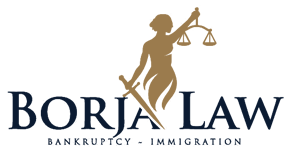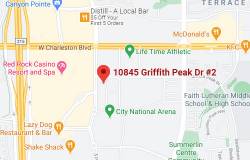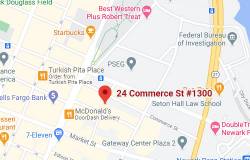
Bankruptcy
At the Borja Law firm, we understand that hard-working people struggle with debt management every day. They find themselves in serious financial predicaments, such as credit card debt, outstanding medical bills, foreclosure, lawsuits, repossession and wage garnishment. If you are overwhelmed by debt, we can assist to rebuild your finances with the protection of Bankruptcy Laws. We are here to help you get back on track with your finances. We have answers to successfully help you resolve your debts, avoid foreclosure or wage garnishment and stop lawsuits. We can help put an end to harassing telephone calls from your debt collectors. We will carefully evaluate your financial situation and help you with the Bankruptcy solution that is right for you.
We can assist you with either:
LAS VEGAS
Chapter 7 – Liquidation of Assets
Chapter 7 bankruptcy is often referred to as the “liquidation” bankruptcy; it is available for individuals and businesses. This type of bankruptcy relieves the debtor from paying most ordinary consumer debts to give an individual a “fresh start.” The debtor has no liability for discharged debts, which may include, credit card debt, medical debt, loans, surrendered real property, surrendered cars, surrendered secured personal property. Chapter 7, however, does not eliminate child or spousal support, most taxes or student loans, and it does not provide for payment on arrears to save a house, car or other secured assets.
In exchange for the for the debt discharge, the debtor may have to surrender some property to the Trustee; but the debtor has a right to retain certain exempt properties. The Trustee may collect and sell any non-exempt money and assets. Proceeds of an asset sale are then distributed to pay the debtor’s creditors.
The process usually takes 4-6 months. A typical Chapter 7 debtor will not appear in court and will not see the bankruptcy judge unless an objection is raised in the case. Usually the only formal proceeding at which a debtor must appear is the meeting of creditors, usually held at the offices of the US trustee.
LAS VEGAS
CHAPTER 13 – WAGE EARNER PLAN
Chapter 13 bankruptcy is referred to as “wage earner plan.” This type of bankruptcy is for individual debtors who earn a significant income (i.e., do not qualify for Chapter 7) or those who want to protect and not surrender valuable nonexempt property. It allows debtors to keep their property and eliminate their debts. Under Chapter 13, debtors pay off all or most of their debts according to an established payment plan supervised by the Bankruptcy Court. The debtors propose a repayment plan to make installment payments to creditors over three or five years, depending on their income. The debtors have to demonstrate that they can afford to meet both their household obligations and pay into the repayment plan. If the plan is approved by the creditors, a court appointed trustee receives a monthly payment from the debtors and distributes assets to creditors based on the provisions outlined in the payment plan. At the end of the plan, the remaining unpaid debts are discharged.
The most significant advantage of filing for bankruptcy under this chapter is the opportunity it gives the debtors to save their home. Filing a Chapter 13 bankruptcy petition stops a foreclosure and allows you to cure delinquent mortgage payments over time under your repayment plan while continuing regular monthly mortgage payments to the lender on time.
This type of bankruptcy is primarily available to individuals, not companies; however, business-related debts that the individual debtor is personally liable will be part of the debtor’s plan.
FILING FEES & OTHER COSTS
For both Chapter 7 and Chapter 13 bankruptcy, you will be responsible for paying fees just to have the bankruptcy court hear your case. These can include:
- Filing fee – The Court cost to file for
Chapter 7: $335 (Note: only until 11/30; effective 12/01 fee is $338)
Chapter 13: $310 (Note: only until 11/30; effective 12/01 fee is $313) - Credit counseling fee – In order to file for bankruptcy, the debtor is required to first receive credit counseling, which generally costs between $20 to $50.
- Personal financial management course fee – After you file for bankruptcy, in order to get a discharge, the debtor is required to take a debt education course, which can range from $50 to $100.
- US Trustee fee – The Bankruptcy Trustee may also charge a fee of $15 to $20.
Document Checklist
In order to complete the bankruptcy forms efficiently and provide the US trustee with supporting evidence, here are some of the document the debtor needs to gather:
- Six months of income information (e.g., paycheck stubs)
- Six months of bank statements
- Tax returns (the last two years), include profit/loss statements and tax return for business
- Credit card, collection (including: complaints and judgments) and other billing statements
- Current credit report (you may visit www.annualcreditreport.com for a free copy)
- Current investment and retirement statements
- Life insurance information
- Title/deed and current mortgage statements for real estate properties (home, time share, etc.)
- Title and current loan statements for vehicles
- List of personal property and estimated value (clothing, jewelry, furniture, technology, antique, collectibles, etc.)
- Divorce and marital settlement agreement
- Driver’s license
- Social security card
Bankruptcy FAQs
Bankruptcy refers to a federal court procedure that provides a fresh start for those unable to pay their debts to discharge all or some of their debts. If the court discharges the debt, the debtor no longer has an obligation to pay the debt, and the creditor may not compel the debtor to pay. However, if the loan is tied to a property as collateral for the debt (i.e. secured debt), the creditor may still be able to repossess that property if the debtor does not pay the debt.
Chapter 7 (“liquidation”)
Chapter 11 (“reorganization”)
Chapter 13 (debt adjustment/wage earner’s plan)
Once a bankruptcy petition is filed, the court issues an automatic stay, which is a protective order that stops to creditors’ telephone calls, letters, repossessions, lawsuits, wage garnishments and foreclosure proceedings. The automatic stay may only be lifted by the court to allow the creditors to seek repayment of the debt.
Secured debt is debt in which the creditor has a lien on the property (such as a house or car) and gives the creditor the right to take the property if the debt is not paid.
Unsecured debt is debt in which the creditor has no interest on the property. Credit card debts, medical bills, student loans, child support, alimony and taxes are unsecured debts.
No, there is no minimum amount of debt to qualify for bankruptcy. Under Chapter 13 bankruptcy, however, there is a maximum debt limit applicable, which changes periodically. Currently (until April 2022) the limit is $1,257,850 for secured debts and $419,275 for unsecured debts.
It depends on the type of debt you have. Unsecured debts from credit cards, medical bills and payday loans will be discharged. unsecured debts from child support, alimony, fines payable to government entities, and restitution imposed on criminal sentence will not be eliminated. Unsecured student loans and some tax debts are unlikely to be eliminated but may possibly be discharged; see below.
Secured debts from surrendered collateral will be discharged, such as foreclosed homes or repossessed cars or personal property.
Furthermore, bankruptcy only discharges debts that you owed and listed at the time the petition for bankruptcy is filed, not debts incurred after filing of the case. Debts not listed in the bankruptcy petition are not discharged.
The type of bankruptcy and the bankruptcy exemptions (i.e., property value protected) determine what you get to keep during and after bankruptcy and what amount you must repay to your creditors.
Under Chapter 7, in exchange for your discharged debt, you may be required to relinquish your property to the trustee for sale to pay off your creditors. Whether you can keep your home, vehicle and personal property depends on the exemption amount in your state law and/or federal law.
Under Chapter 13, since you establish a repayment plan to pay off all or most of your debts, you are able to keep all of your property. The bankruptcy exemptions are used to calculate the minimum amount you must repay to unsecured creditors through your repayment plan.
Some tax debts may be dischargeable; but it depends on how old that taxes are, when the tax returns were filed, when the IRS assessed the tax and whether there is an IRS lien.
Student loans are not dischargeable unless the debtor, in a separate and additional legal step, can prove that repayment would cause an undue hardship, which is very difficult to prove.




